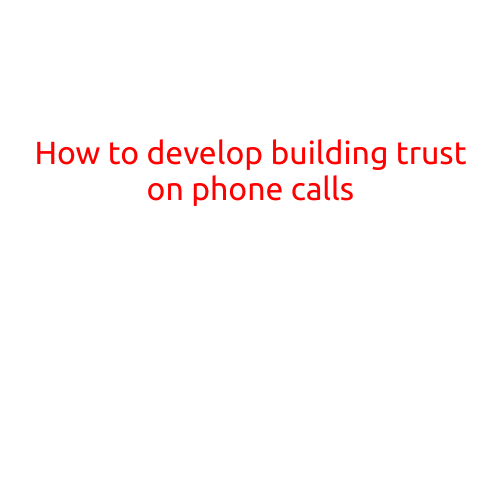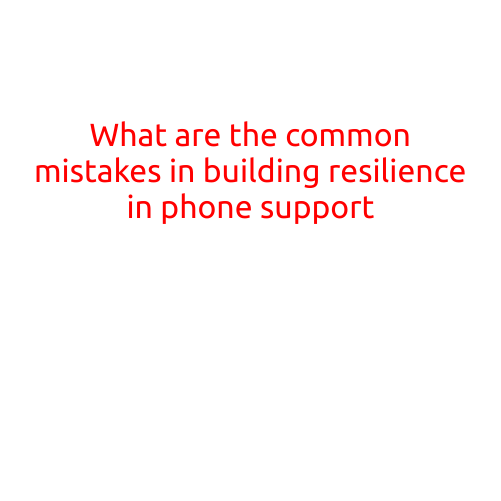
How to Develop Building Trust on Phone Calls
In today’s digital age, phone calls have become an essential tool for businesses to communicate with customers, clients, and colleagues. Whether it’s a sales call, a customer support call, or a networking call, building trust is crucial to achieve the desired outcome. A trustful conversation can lead to increased conversions, stronger relationships, and a competitive edge in the market. In this article, we’ll explore the importance of building trust on phone calls and provide practical tips to help you develop trust with your callers.
Why Building Trust Matters on Phone Calls
Building trust on phone calls is vital for several reasons:
- Establishes credibility: When you build trust, you demonstrate your expertise and credibility, which can help to establish your authority in the conversation.
- Increases rapport: Trust fosters a sense of connection and rapport, making the conversation more enjoyable and increasing the likelihood of a successful outcome.
- Encourages open communication: Trust allows callers to feel comfortable sharing their concerns, questions, and needs, enabling you to provide more effective solutions.
- Boosts customer loyalty: When customers feel trusted, they’re more likely to return to your business and recommend it to others.
Practical Tips to Build Trust on Phone Calls
To develop trust on phone calls, follow these practical tips:
- Answer calls promptly: Respond to phone calls quickly to show that you’re attentive and considerate of the caller’s time.
- Use a friendly and professional tone: Showcase your personality while maintaining a professional tone to create a warm and welcoming atmosphere.
- Listen actively: Pay attention to what the caller is saying, and respond thoughtfully to demonstrate your engagement.
- Be honest and transparent: Be truthful and transparent in your conversations, avoiding any misleading or ambiguous information.
- Show empathy and understanding: Demonstrate empathy and understanding towards the caller’s concerns and needs, showing that you genuinely care about their situation.
- Keep promises and follow up: Follow up on any commitments you make and keep your promises to show that you’re reliable and dependable.
- Use a calm and confident demeanor: Speak calmly and confidently to convey authority and expertise.
- Use positive body language: Even though the caller can’t see you, use positive body language in your voice and tone to convey enthusiasm and interest.
- Avoid jargon and technical terms: Use simple language to avoid confusing the caller and show that you understand their needs and concerns.
- Show appreciation and gratitude: Express gratitude for the caller’s time and consideration, showing that you value their business.
Conclusion
Building trust on phone calls requires a combination of effective communication, empathy, and professionalism. By following the practical tips outlined in this article, you can establish a stronger connection with your callers, increase conversions, and build long-term relationships. Remember that trust is a foundation that takes time to build, but it’s worth the effort to achieve success in your personal and professional life.





